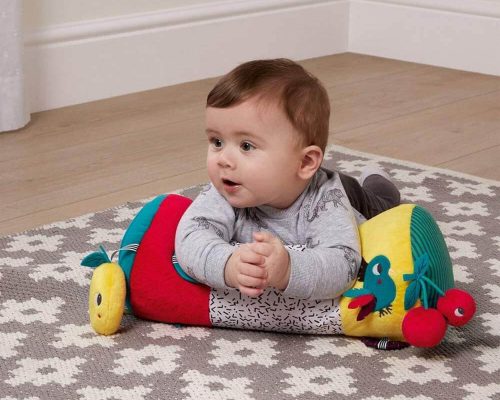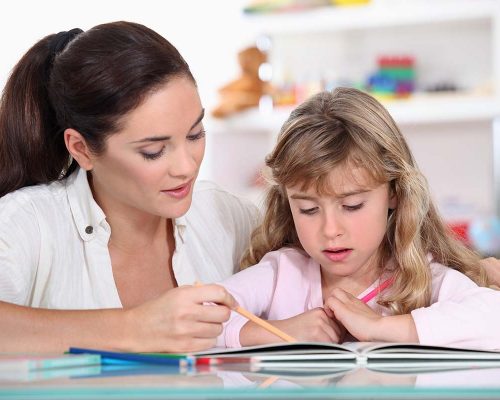All you need to know about the “Development matters” guide from the Foundation Years
What children learn is important, but how they learn is even more important. We want our babies to become life-long learners in today’s society. If we can teach them how to learn, we have set them up for a successful life.
Early Education Specialists have launched a guidance manual to support the implementation of positive learning ideas and the Early Years Foundation Stages (EYFS).
While this “Development Matters” document holds some very helpful information, it is filled with an overwhelming amount of information that takes hours to go through and is difficult to comprehend. Rather than reading through it yourself, we did the leg work for you. This article will give you easy to comprehend tips from the guide you need to help your baby succeed!
Different Areas of Learning for your Child
It is quite obvious that babies, toddlers and young children learn through different tasks and develop at their own rates and in their own ways. No two children will develop at the same speed and in the same way. So if you are trying these tips from “Development Matters” on your second child, keep in mind the development may take place in their order. This article should not be used as checklists because some stages might be skipped.
With that in mind, the document was created to understand what to expect during these vitally important years by focusing on the seven areas of learning and development.
These are the seven areas of learning and development and their aspects
- Personal, social and emotional development: focuses on making relationships, self-confidence and self-awareness, and managing feelings and behavior.
- Physical Development: emphasis is on movement and handling as well as health and self-care.
- Communication and language: is aimed around listening and attention skills as well as understanding and speaking.
- Literacy: is solely reading and writing skills.
- Mathematics: helps with numbers, shapes, space, and measurement.
- Understanding the world: focuses on children understanding people and communities, the world, and technology.
- Expressive arts and design: allows your child to explore concepts by using medial and material and it exercises imagination.
Sure it seems like a lot! But when you think about it, several of these aspects are used in one task at times.
How Do We Know Our Child is Learning Effectively?
The four themes of early learning work together for children to learn effectively. These themes include:
- A unique Child
- Positive Relationships
- Enabling Environments
- The first three themes together makes the fourth: Learning and Development
A Unique Child
The first theme, “A unique child”, suggests that every child is different and can be resilient, capable, confident and self-assured. It is important to observe your child’s development and learning, assess their progress, and plan for next steps. Not all children will learn in the same order however they need support and positivity to develop their own identity.
Each child has their own ideas, makes their own links between ideas, and chooses the way they do things. It is important for them to feel safe and valued. Allow them to do things their way. If you don’t know how to observe your child’s learning, here are a few things to look for:
- Is your child thinking of ideas to solve small problems or finding new ways to do things?
- Are they making links between words and objects?
- Are they able to predict what is going to happen after observing a process?
- Do they change the way they do things to better their activity?
Positive Relationships
Positive relationships help children thrive at a young age. This theme focuses of what the parent can do to help their child with effective learning. Children learn to be strong and independent through encouraging and positive relationships. They need to have a warm and loving sense of belonging. It is important for you to be sensitive and responsive to your child’s needs, feelings and interests. Supporting their efforts and setting clear boundaries helps a positive relationship emerge. Try some of the following:
- Model behavior of a “thinker” by being curious and sometimes puzzled.
- Give children time to talk and think. Patience with this isn’t always easy.
- Support their independence and allow free play.
- Encourage your child to describe problems they encounter and suggest ways to solve them together.
Enabling Environment
The environment your child is in has a great impact on their development. Enabling environments aid to their individual needs and create a strong partnership between you and your child. When planning activities, ask yourself, “Is this an opportunity for children to find their own ways to represent and develop their own ideas?” You don’t want your child to simply repeat someone else’s ideas. A few ways to help create an enabling environment for your child includes:
- Offer stimulating resources
- Provide resources that are relevant to the child’s culture and community
- Use rich learning opportunities through play and playful teaching
Learning and Development
The final theme is “Learning and Development”. All children develop and learn in different ways but when your child is encouraged to learn their own way, you will see development flourish. With the first three themes in place the fourth theme follows automatically. Learning will occur and development will improve. Allow your child to play and explore the world while engaging them. Parents should provide motivation for their child to keep trying. Make learning enjoyable for them.
Start Early
Babies can begin learning from birth. They will mimic what you do and will look for familiar faces. You can provide them with engaging and playful interactions from day one. They will mirror your actions and copy what you say, but they will begin to understand there are other ways to do things.
You will begin to notice your child’s confidence in trying new activities as they grow. Allow them to experiment so they may find activities they enjoy more than others. The development of your child will become a positive experience leaving you with one less worry!
Alternatively to “Development matters, there is a very informative and easy to read leaflet for parents to help them understand the development of their baby: What to expect? When?
Resources from the Foundation Years website:
Statutory framework for the early years foundation stage
What to Expect when?



